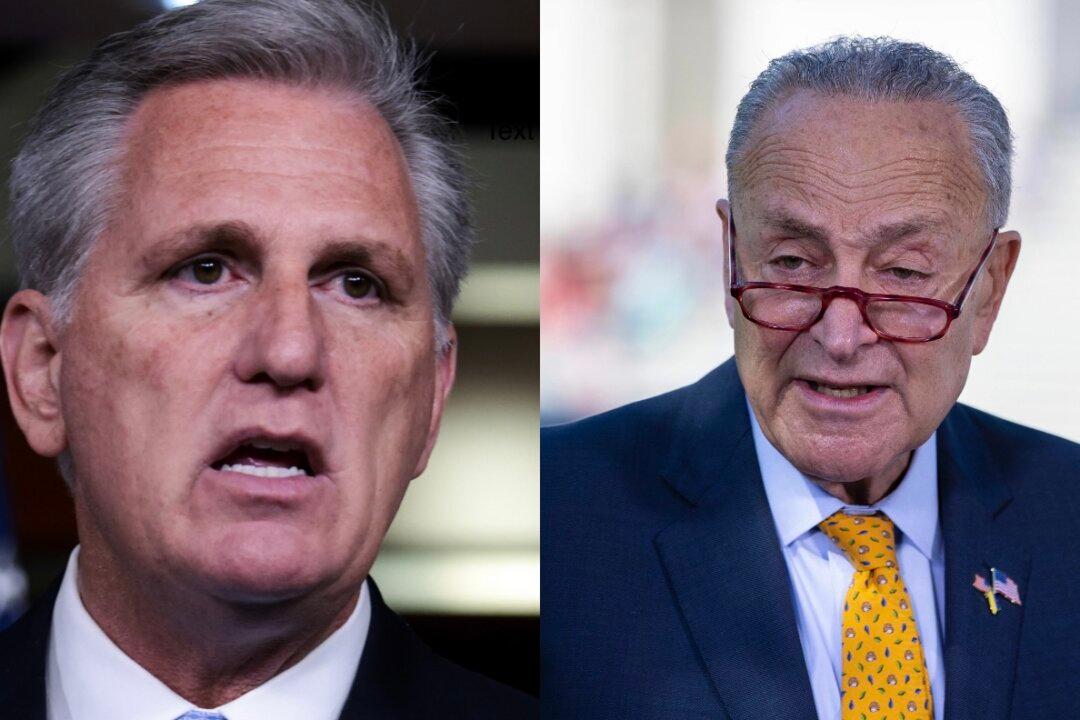Senate Majority Leader Chuck Schumer (D-N.Y.), who is on track to keep his job as Democrats are projected to retain control of the U.S. Senate, says he thinks the results of the midterm elections will force Republicans to be more bipartisan in the 118th Congress.
Democrats have held enough seats to maintain their majority, with Vice President Kamala Harris’s tiebreaking vote, according to projections. The battle for the Senate was settled after incumbent Sens. Mark Kelly (D-Ariz.) and Catherine Cortez Masto (D-Nev.) fought off Republican challengers.





